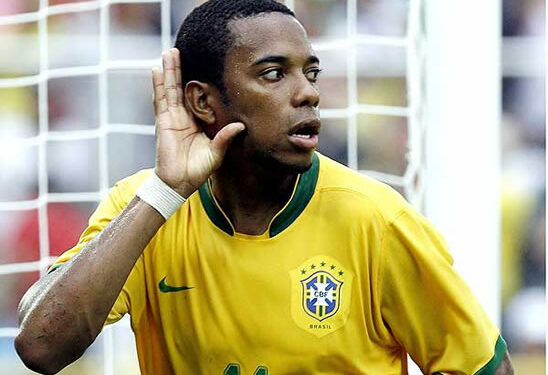Brazil’s justice system is set to make a crucial decision on Wednesday regarding the fate of former Manchester City and Real Madrid striker Robinho, who faces a nine-year prison sentence for rape handed down by an Italian court. The Brazilian Superior Court of Justice (STJ) will review Italy’s request to enforce the sentence imposed in 2017 and upheld in 2022.
In an interview with Brazilian network TV Record on Sunday, Robinho, whose full name is Robson de Souza, expressed hope for a fair hearing in Brazil, asserting his innocence in the case. The conviction stems from his involvement, along with five others, in the gang rape of a young Albanian woman at a Milan nightclub in 2013, during his tenure with AC Milan.
Despite the conviction and the subsequent issuance of an international arrest warrant by Italian authorities, Robinho remains free as Brazil does not extradite its citizens. Instead, Italy seeks to have him serve his sentence in his home country. Robinho has accused the Italian justice system of racism, claiming the encounter was consensual and expressing frustration with the portrayal of the incident.
If the STJ rules against him, Robinho, now 40, could still remain free pending an appeal to Brazil’s Supreme Court. Brazil’s President Luiz Inacio Lula da Silva has expressed support for Robinho serving his sentence domestically.
The case has drawn attention not only for its legal implications but also for the broader issue of violence against women in Brazil. Criticism has been directed at football authorities for their silence on the matter, particularly following the recent sentencing of former Barcelona and Paris Saint-Germain defender Dani Alves for a similar offense.
Robinho’s career, once promising and celebrated, has been tarnished by these allegations and legal troubles. Despite his talent and successes on the field, including international honors with the Brazilian national team, his legacy is now marred by these serious accusations.
This case underscores the challenges faced by Brazilian authorities in addressing violence against women and holding public figures accountable for their actions.
























